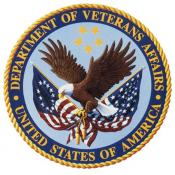The VA Will Now Pay For Fertility Treatment For Wounded Vets
By Merrit Kennedy,
NPR
| 09. 30. 2016
For the first time in almost 25 years, the U.S. Department of Veterans Affairs will pay for In Vitro Fertilization for wounded veterans.
As NPR's Quil Lawrence explains, Congress has reversed a law passed in 1992 that "prohibited the Department of Veterans Affairs from paying for IVF for veterans and their families." Quil tells our Newscast unit that "inside the stopgap spending bill passed this week is a provision to allow fertility treatments including IVF through VA health care." Here's more from Quil:
"Attempts to change that law have been blocked in recent years by opponents of abortion, since embryos are often destroyed in the IVF process.
"But political pressure has mounted as hundreds of Iraq and Afghanistan vets returned with blast wounds and other injuries that affect their reproductive abilities."
He adds that while the VA did not fund IVF for veterans until now, the Pentagon's health system did – for active duty troops who suffered "combat-related reproductive injuries."
The American Society for Reproductive Medicine says IVF costs an average of $12,400 per cycle, as Quil has reported...
Related Articles
By Pete Shanks
| 02.27.2026
Last month, we published “The Shameful Legacy of Tuskegee” which focused on a proposed experiment in Guinea-Bissau. The study’s plan echoed the notorious Tuskegee disaster, withholding safe, effective vaccines against hepatitis B from some newborns while inoculating others. It was to be financed by the U.S. but performed by a controversial Danish team. That project provoked a multi-national outcry, leading to a remarkable response from the World Health Organization:
WHO has significant concerns regarding the study’s scientific...
By Jenn White, NPR | 02.26.2026
By Kiana Jackson and Shannon Stubblefield, New Disabled South | 02.09.2026
"MC0_8230" via Wikimedia Commons licensed under CC by 2.0
This report documents a deliberate assault on disabled people in the United States. Not an accident. Not a series of bureaucratic missteps. An assault that has been coordinated across agencies...
By Scott Solomon, The MIT Press Reader | 02.12.2026
Chris Mason is a man in a hurry.
“Sometimes walking from the subway to the lab takes too long, so I’ll start running,” he told me over breakfast at a bistro near his home in Brooklyn on a crisp...




